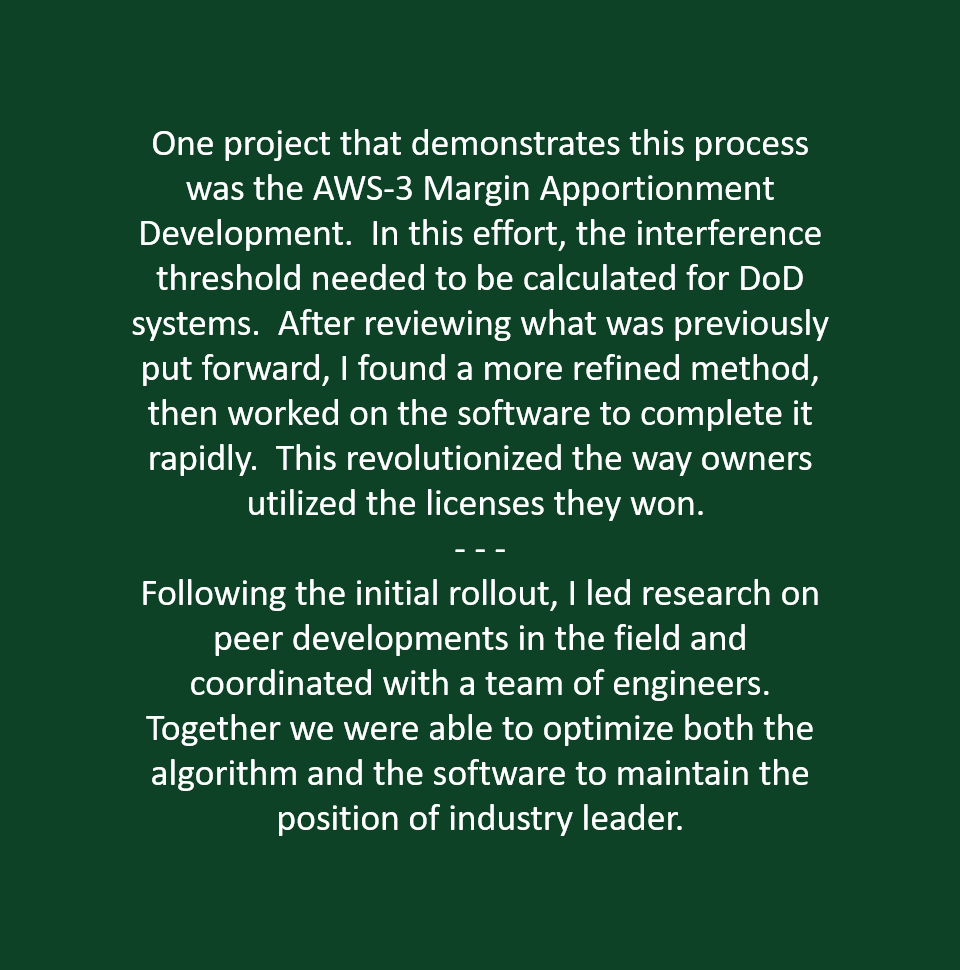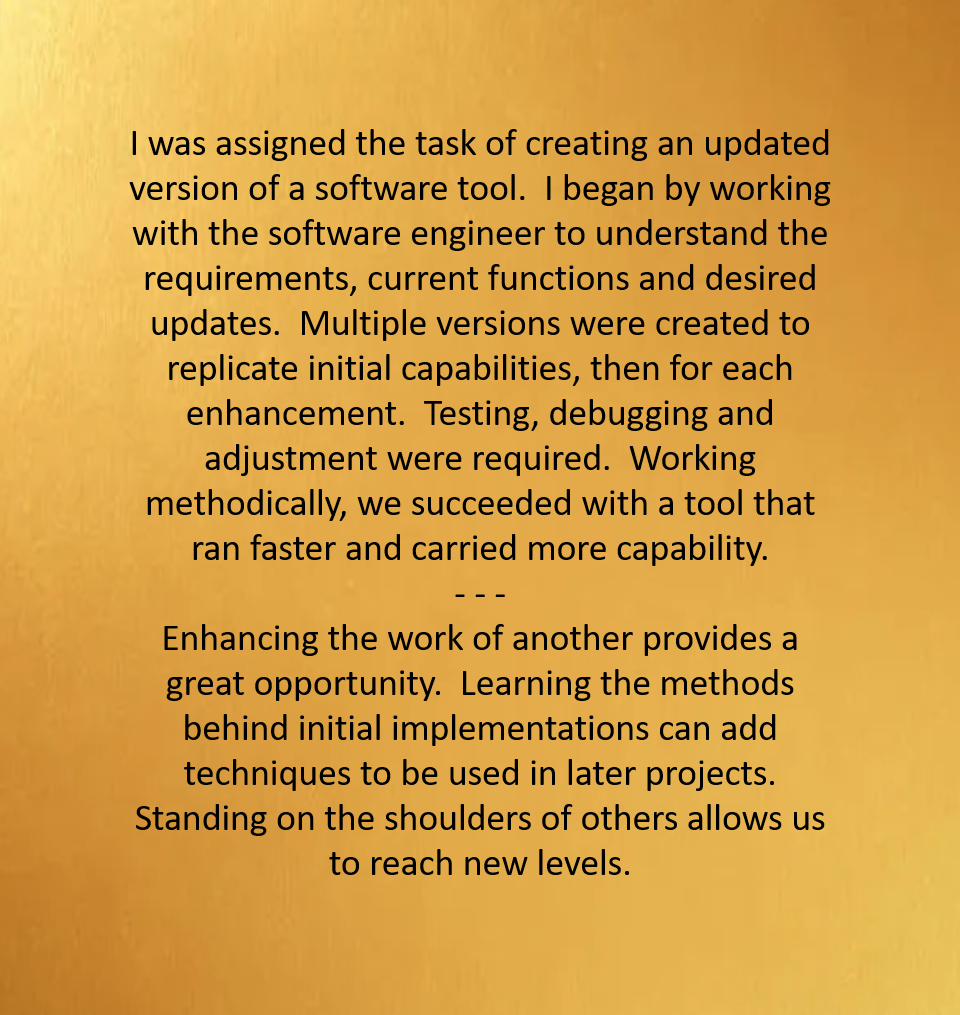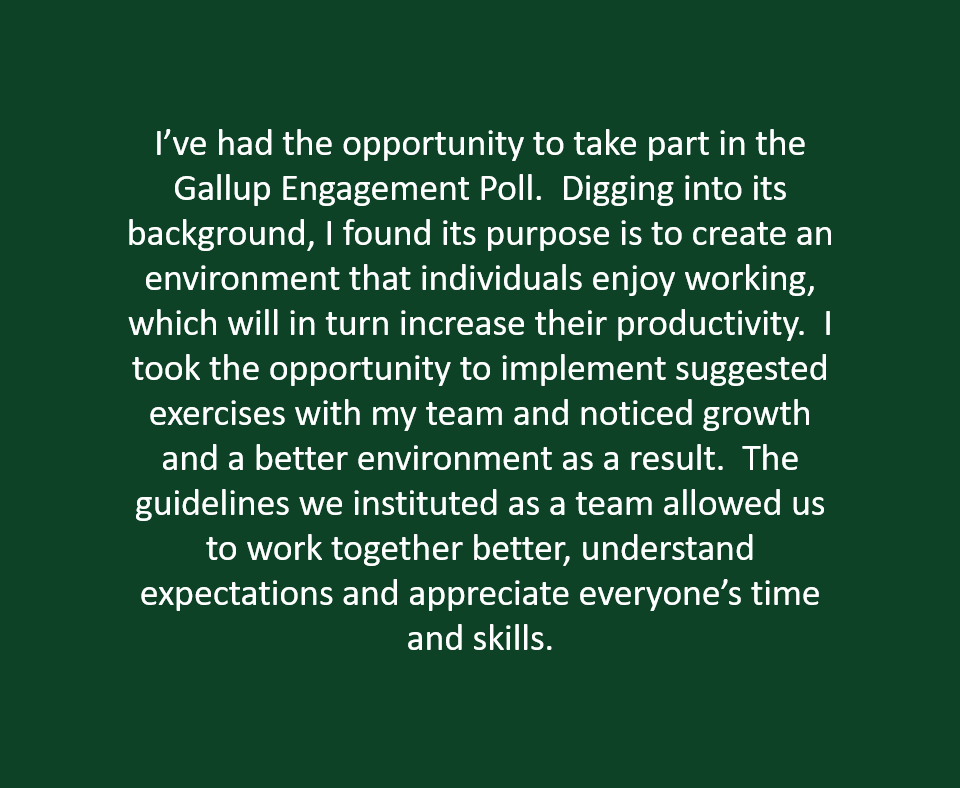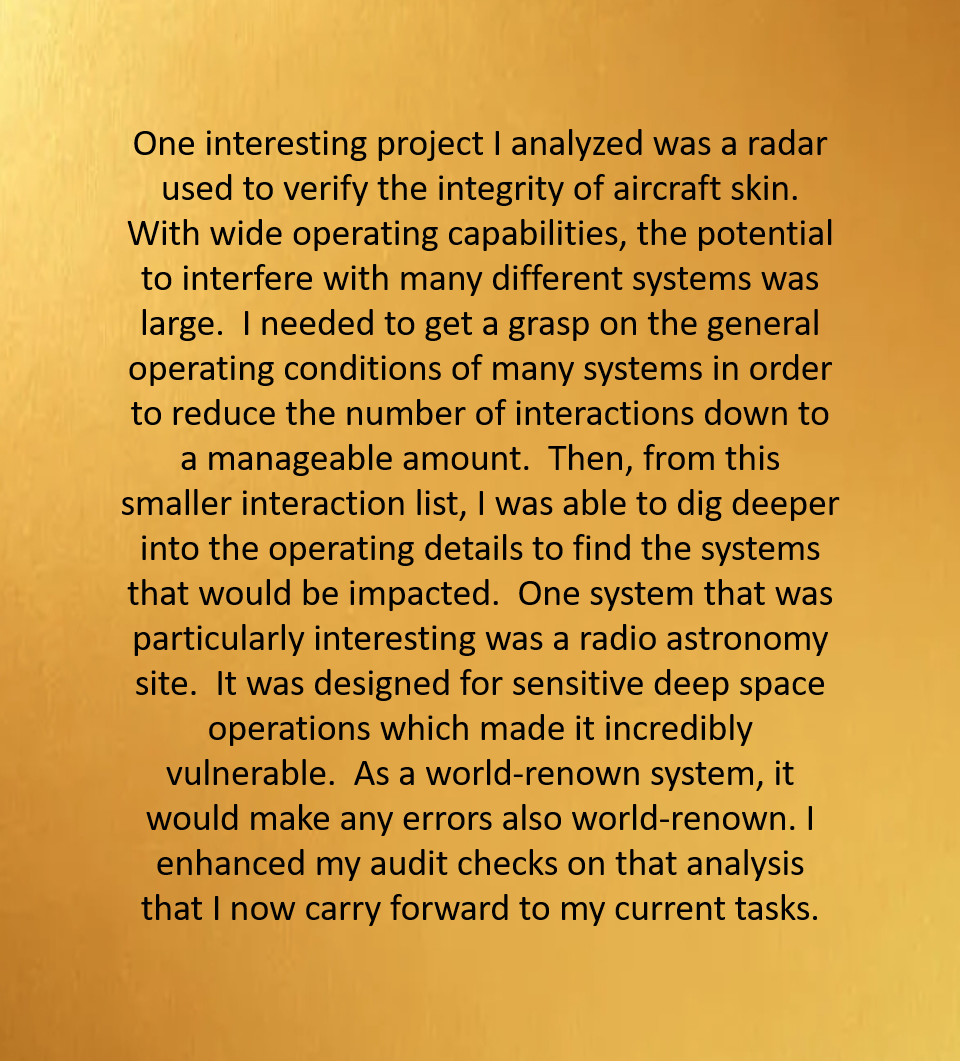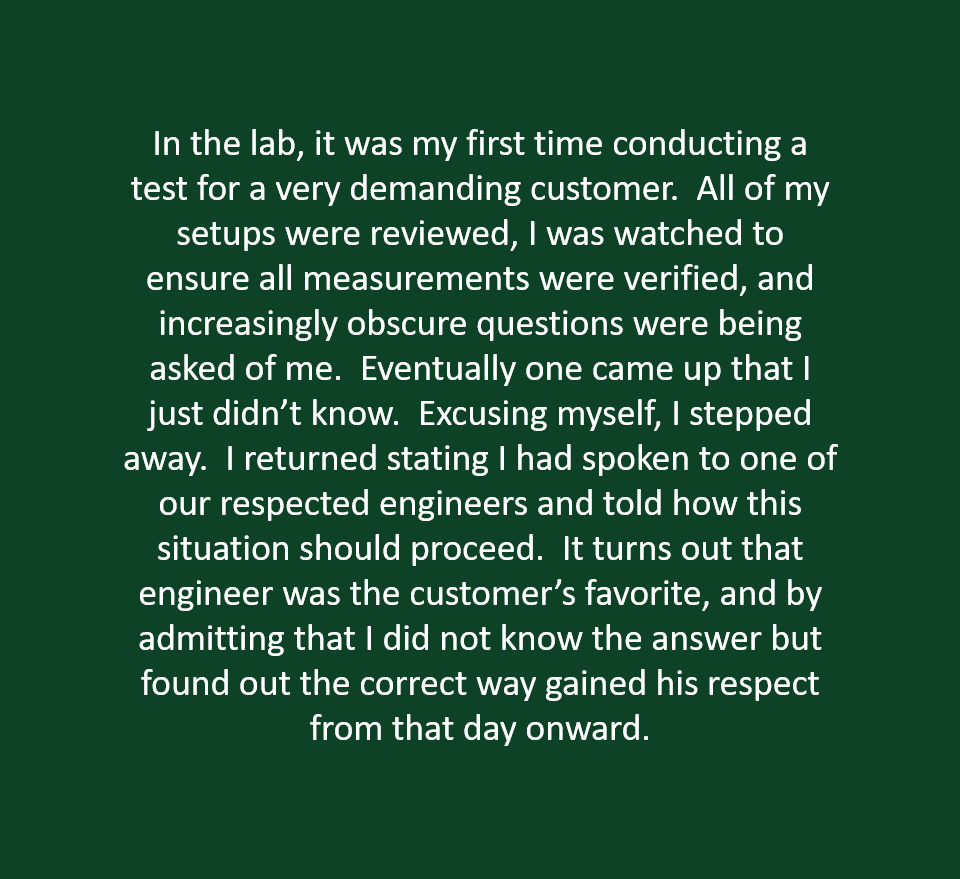As an Electrical Engineer, I’ve enjoyed many exciting experiences. I’ve had opportunities to create algorithms that have changed the way industry conducted business as well as develop systems that pushed the technological limits. On this adventure, I’ve gotten to learn from many brilliant engineers and talented professionals as we’ve worked side by side.
Algorithm Development
Throughout my engineering career, I’ve enjoyed looking at how things were being done, breaking it down to its core and rebuilding it back.
That has allowed me to gain a strong understanding of the basics, see the wisdom behind how methods were incorporated and discover a path forward on how to improve to the next level. Combining lessons learned from multiple projects, I’ve taken those processes to create something new. I’ve used that approach to continually push my field of study further than it had been before.
Systems Engineering
Development for both hardware and software require a methodical start. Skipping careful planning will only bring frustration later.
Both software and hardware development follow similar paths: gathering and formalizing requirements, clarifying what is required to the developers, the build, testing iterations and debugging. Then, repeating the process for revisions and updates. I have had the opportunity to develop multiple projects for both types, and the more I’ve gotten to be involved, the more I learn to make the process better the next time. Tedium can set in during the initial planning and coordinating steps while excitement increases for the actual building, but careful planning increases the chances for success.
Leadership
Leading a team allows bigger ideas to come to fruition, but comes with great responsibility.
Respecting the dignity of each person on your team allows ideas to grow and inspire new ways to be creative. This may involve putting one’s own ideas on hold to promote another’s, but the resultant boost in confidence from the team often inspires further growth.
Analysis
Analysis has been the core of my career, primarily in EMC.
Electromagnetic Compatibility analyses involve investigating how introduced systems impact a new environment. That has included scenarios such as how a prototype radar would impact aircraft on a carrier or if a new radio will function alongside the other electronics on a jet. I’ve conducted analyses on equipment and components from aircraft, shipborne and ground and sponsored by groups from the DoD, other federal agencies and commercial companies.
Test & Measurement
Nothing prepares you for thinking on your feet like conducting a test in a remote location where you can only depend on your experience and critical thinking to solve problems, all while you customer watches on intently.
Testing remote means needing to adapt to situations as they arise to make the most of the event and gather the data that’s required. This differs from lab testing where each test needs to be repeatable and the test lead needs to be an expert on what is happening. I’ve had the opportunity to run both types of testing and even build up labs for custom testing.




